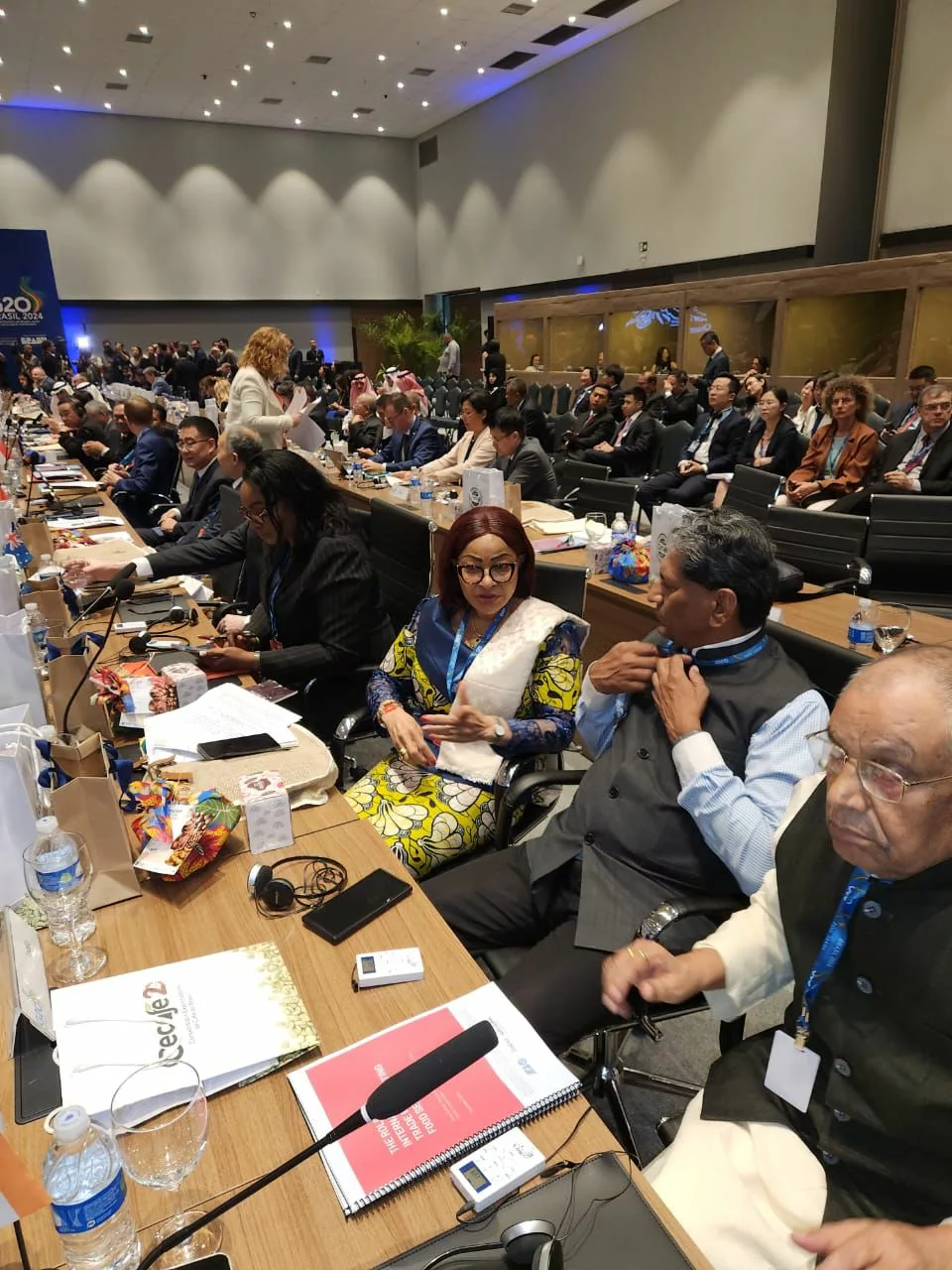|
Getting your Trinity Audio player ready...
|
OWN CORRESPONDENT
Cuiabá (Brazil) – African Union Commissioner Josefa Correia Sacko today defended the need for climate-resilient agricultural practices, climate information services, and agricultural insurance programmes to support farmers in Chapada dos Guimarães in central Brazil, 62 km from the city of Cuiabá, capital of the state of Mato Grosso.
Speaking at the G-20 ministerial meeting on agriculture, which runs from 12 to 14 September, the diplomat also considered it important to promote and adopt agro-ecological practices that prioritise soil health, biodiversity, and ecosystem services, as well as sustainable water management practices, including water collection and conservation.
She emphasised that the African Union identifies with the recognition of the essential role of family farmers, smallholders, Indigenous peoples, and local communities in achieving sustainable agricultural development.
“We recommend that the declaration recognises the rights of Indigenous peoples to their lands, territories, and resources, and ensures their participation in decision-making processes, as well as encouraging the development of local food systems as a way of elevating the role of family farmers and strengthening food security and nutrition,” she said.
AU Commissioner emphasised that the issue of promoting the integration of sustainable fishing and aquaculture into local and global value chains can ‘play an important role’ in contributing to food security, nutrition, and economic development.
“We identify with the adoption of sustainable fisheries management practices and encourage G20 members to support the development of aquaculture, including training, infrastructure development, and market access, the development of value chains for fisheries and aquaculture products, including processing, marketing and trade facilitation,’ said the ambassador.
Regarding strengthening the contribution of international trade to food and nutrition security, she assured that the African organisation strongly supports this area, especially now that the continent is currently implementing the African Continental Free Trade Area (AfCFTA), which has enormous potential to increase intra-African trade, economic integration, and agricultural development.
She said that despite the peculiarity of the AfCFTA for the African region, a declaration recognising the fundamental role of this zone in promoting intra-African trade, economic integration, and agricultural development was recommended and that she hoped the G-20 would support this initiative.
“The African Union supports the Ministerial declaration and calls for a more inclusive and responsive declaration that addresses some of the unique challenges and priorities of African countries. We are committed to working with the G20 and other stakeholders to achieve sustainable agricultural development, food security, and prosperity for all,” she emphasised.
Commissioner Sacko said the African Union has validated a new strategy for agricultural transformation, which will run from 2026 to 2035, succeeding the Malabo Declaration that expires next year.
In this regard, she said that a set of objectives is expected to be approved at the next extraordinary summit of African heads of state and government, scheduled for 9 to 11 January.






